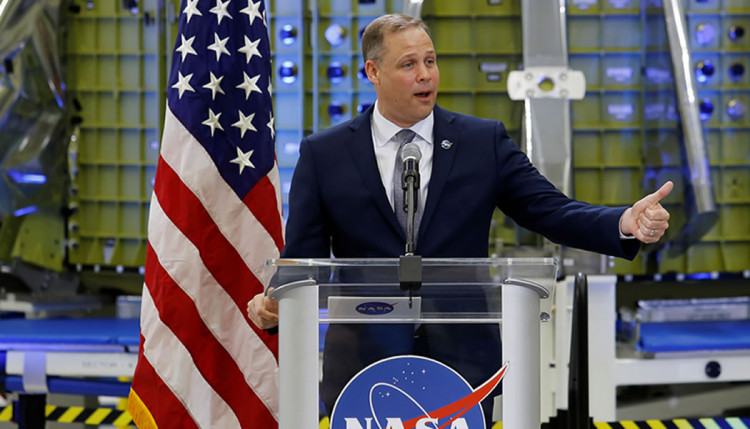NASA is on the works to do a deep-space exploration. The space agency has considered commercial help to diminish further launching slips due to the additional delays of Boeing Co. rocket. Because it will also delay the agency's future deep-space exploration craft.
According to Jim Bridenstine who is the NASA Administrator, The Space Launch System is having problems to meet its schedule. He said that at the Senate hearing last Wednesday. The rocket will not be ready for the launch in June 2020. It is the plan of the space agency to have the Exploration Mission-1 flight of its Orion spacecraft around the moon.
As follows, the agency is now exploring the options for meeting the deadline using "commercial capabilities." Bridenstine added that NASA remains committed to Boeing's SLS largest rocket in US history and the "critical capability" of the future deep-space missions.
Bridenstine also mentioned that the National Aeronautics and the Space Administration will decide on how they will proceed on the uncrewed test flight as soon as this month. He added that in order for them, to keep the EM-1 mission on schedule, he said that "We need to consider as an agency all options. NASA has a history of not meeting launch dates and I'm trying to change that."
In an Oct. 2018 audit by NASA's Inspector General, they have found multiple management flaws in the SLS program. It has been said the Boeing was likely to spend at for the rocket of at least $8.9 billion. It is double on the original budget, according to Bloomberg Quint.
In line, a test flight of the Orion capsule was launched back in 2015. It is aboard on a Delta 1V rocket built by the United Launch Alliance. It is a joint venture of the Lockheed Martin Corp. and Boeing.
NASA would be forced to purchase two heavy-lift vehicles, without the SLS. Not only that the agency will then have to launch it and then integrate the Orion with an upper stage in orbit, adding to the cost. During the Senate panel, Bridenstine mentioned that the space agency might need further financial assistance from Congress.
Furthermore, Space news reported that Bridenstine told the Senate Committee on Commerce, "We're now understanding better how difficult this project is and that it's going to require some additional time." He also assured the committee that NASA is committed to keeping the EM-1 on schedule. Even if it means that the agency will have to purchase a commercial rocket.






